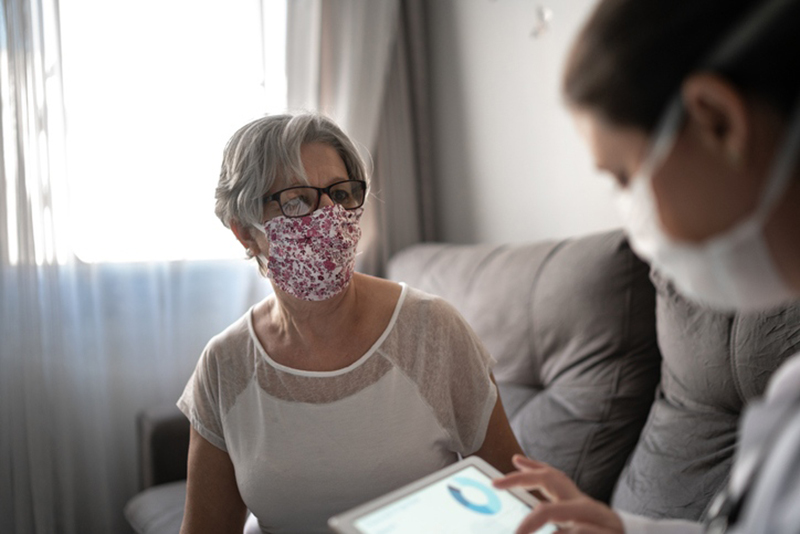This week, September 13-19, is National Assisted Living Awareness Week! Established in 1995, the goal of the week is to educate the public and acknowledge the importance of staff, volunteers and communities dedicated to providing care for aging adults.
Assisted living has evolved significantly over the centuries it has been a part of US culture and community. In 1823, one of the first documented and dedicated homes for indigent widows and single women opened in Philadelphia. In 1935, the US passed social security and workers began taking advantage of benefits, including finding accommodations appropriate for aging. The arrival of Medicare and Medicaid in 1965 further influenced the design and approach to modern nursing facilities. In the 1970’s, Jessie F. Richardson and her daughter, Dr. Keren Wilson worked together to introduce the concept that we think of today as assisted living. In the past few decades, there have been many advances in assisted living design and care, including specialized accommodations for memory care and rehabilitation. In addition, with an increase in specialists in geriatric care, aging in place options began to include in-home health care support for aging adults.
Assisted Living: Safety & Amenities
Assisted Living is a residence for older adults who are able to manage most activities of daily living as long as they receive some dedicated assistance. The residences are intended to allow residents the most independence possible while adjusting to their changed abilities. Above all else in Assisted Living, the safety and comfort of the residents is the priority. The design of the buildings, programming and training of the staff all aim to make the residents live their best lives, secure that they are being cared for by trained professionals. In recent months, experts have worked tirelessly to establish and refine Covid-19 protocols, following CDC recommendations and community guidelines, which are updated routinely to keep members in the community and staff safe.
Living in an assisted living residence creates opportunities and has many benefits. With meals provided, cooking is no longer a challenge, and most residences offer additional amenities like transportation and programming that allows for socializing with other residents, now with physical distancing. Creative communities have developed innovative programming with virtual and interactive experiences, which have been popular within the communities.
Assisted living is a great solution for aging adults who may not be able to manage the demands of living alone at home. Senior living in this type of environment may provide amenities, health care, socialization, transportation, quality of life and affordability.
Aging In Place
Aging adults who wish to live at home require additional care to maintain a safe and healthy lifestyle. With the growth of geriatric services, there is a growing trend towards finding ways to age in place, including support for medication management, transportation to medical appointments, grocery shopping, meal prep and housekeeping.
In-home health care goes beyond medical needs, and it can support personal care such as bathing, grooming, dressing, and medication reminders. Other aging in place solutions include lifestyle services that offer transportation to places when needed. Not everyone needs permanent solutions, and adults recovering from a medical procedure or health crisis may want to have assistance in their home to facilitate improvement. These services can be arranged both for short and long-term duration based on your unique situation.
Within the Charles E. Smith Life Communities, they have Landow House, their assisted living apartments. Their team of healthcare experts provides personalized care and as-needed support in a private apartment setting. From daily life assistance to medical care and rehab therapy, their quality services enable residents to continue to enjoy meaningful experiences each and every day. In October 2020, Landow House is expanding its services to offer memory care. Cohen-Rosen House currently provides a state-of-the-art memory care program with a historically high occupancy of 99 – 100% so they are extending these exceptional memory care services to Landow House. Visit the Charles E. Smith Life website for more information!
SmithLife Homecare provides care in all other Assisted Living and Memory Care facilities in Montgomery County and Washington, DC.
For adults considering in-home care, SmithLife Homecare offers Certified Home Safety Experts to come to your home and provide a free assessment. There are short term and long term options that can help in an Assisted Living apartment. SmithLife Homecare uses smart technology, powered by ClearCare, to create a unique home care experience for clients, caregivers, and referral sources. Call 301-816-5020 today or request additional information here.
